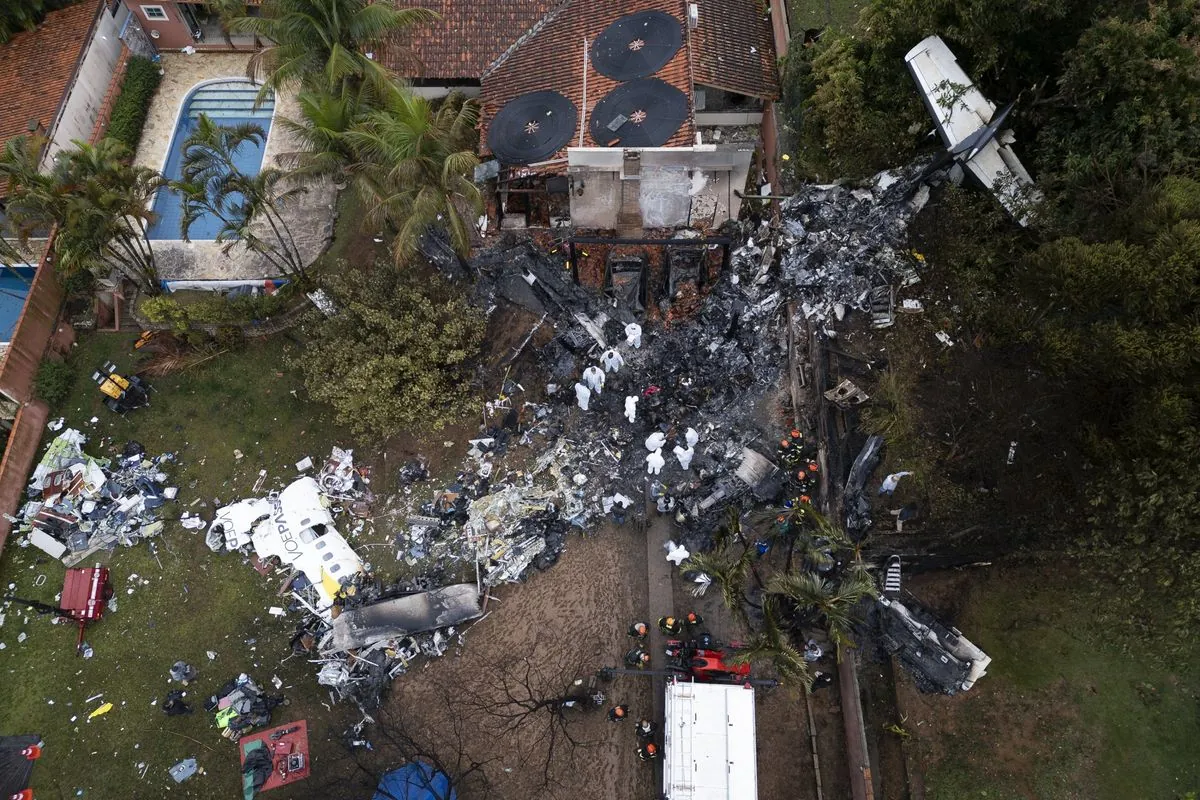On August 9, 2024, a catastrophic aviation incident occurred in Vinhedo, Brazil, resulting in the loss of 62 lives, including eight medical professionals. The ATR 72 twin-engine turboprop, en route from Cascavel to São Paulo's Guarulhos International Airport, crashed in a residential area, leaving the nation in shock.
Among the victims were Dr. Arianne Risso, 34, and Dr. Mariana Belim, 31, both oncologists from Cascavel's cancer hospital. These dedicated professionals were traveling to attend an oncology conference, seeking to enhance their expertise in a field that affects millions globally. Cancer remains the second leading cause of death worldwide, with an estimated 9.6 million fatalities in 2018.
Dr. Willian Rodrigo Feistler, a general practitioner from Cascavel, shared his memories of the victims:
"Mariana was serene with a melancholic temperament, but very intelligent, empathetic and devoted to her profession. She dedicated much of her life to studies and medical training."
The loss of these medical professionals has deeply affected Brazil's healthcare community. The country boasts one of the world's largest medical education systems, with over 300 medical schools, and a universal healthcare system known as the Unified Health System (Sistema Único de Saúde, SUS).
The Brazilian Society of Clinical Oncology (SBOC) expressed its condolences, emphasizing the significant impact of losing such dedicated professionals. The incident has highlighted the risks associated with air travel, even as medical practitioners strive to advance their knowledge and improve patient care.
Investigations into the crash are ongoing. The Air Force's Center for the Investigation and Prevention of Air Accidents (CENIPA) has recovered both black boxes - the Flight Data Recorder (FDR) and Cockpit Voice Recorder (CVR). These orange-colored devices are crucial for understanding the circumstances leading to the accident.
Initial reports suggest that severe icing conditions may have played a role in the incident. Icing in aviation can significantly affect aircraft performance, potentially leading to loss of control.
As the nation mourns, questions about aviation safety and the circumstances surrounding the crash persist. The incident serves as a stark reminder of the risks faced by those who dedicate their lives to saving others, even as they pursue further education and expertise in their fields.
